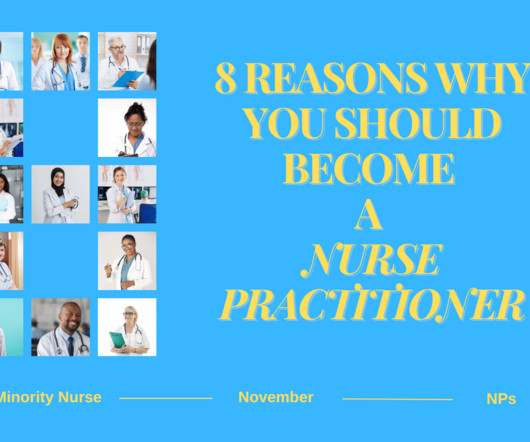8 Reasons Why You Should Become a Nurse Practitioner
Minority Nurse
NOVEMBER 11, 2024
Nurse practitioners have a significant impact on the healthcare system. Continue reading to learn why you should become a nurse practitioner today. Competitive Pay There is a demand for nurse practitioners across all areas of healthcare, which leads to higher salaries and competitive pay.





















Let's personalize your content